Managing customer relationships is a cornerstone of any successful business, yet small companies often grapple with this critical aspect. Many small enterprises rely on scattered spreadsheets, inconsistent notes, or memory to track customer interactions. This fragmented approach not only hinders efficient customer management but also impedes growth. According to a study by HubSpot, 40% of salespeople still use informal means like spreadsheets and emails for customer data, which can lead to disorganization and missed opportunities. Enter small business CRM—a transformative solution designed to streamline and enhance customer management.
A well-implemented CRM consolidates customer information, tracks interactions, and automates various processes, making it easier for businesses to maintain and grow their customer base. For instance, Nucleus Research found that CRM applications can boost sales productivity by up to 34%. Moreover, data from Salesforce indicates that businesses using CRM systems experience a 41% increase in revenue per salesperson.
In this blog, we will explore the myriad ways small business CRM systems can resolve the common struggles faced by small businesses in managing customer relationships. We will delve into the benefits of CRM, demonstrating how it can significantly enhance customer satisfaction, boost sales, and drive business growth. Whether you’re a small business owner or a budding entrepreneur, understanding the power of CRM can be the key to unlocking your business’s full potential.
Small Business CRM: Understanding CRM Fundamentals
What is CRM?
Customer Relationship Management (CRM) is a strategic approach to managing and analyzing customer interactions and data throughout the customer lifecycle. It’s a comprehensive system designed to improve business relationships with current and potential customers. By centralizing customer information and automating tasks, CRM empowers businesses to make data-driven decisions and deliver exceptional customer experiences.
Core Components of CRM
A robust CRM system encompasses several key functionalities:
- Contact Management: This serves as a centralized repository for storing and organizing customer information, including contact details, purchase history, preferences, and communication history. This enables easy access to customer data for sales, marketing, and customer support teams.
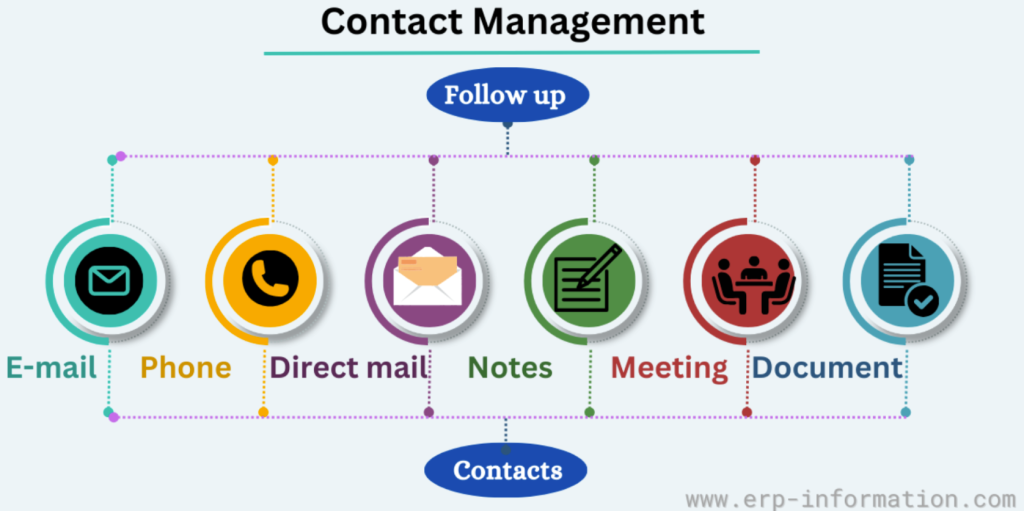
- Sales Pipeline Management: This feature helps visualize and manage the sales process from lead generation to closing deals. By tracking potential customers and their progress through the sales funnel, businesses can prioritize leads, forecast sales, and improve sales efficiency.
- Customer Support: A CRM system can streamline customer support operations by tracking customer inquiries, resolving issues, and managing support tickets. This helps improve response times, enhance customer satisfaction, and build stronger customer relationships.
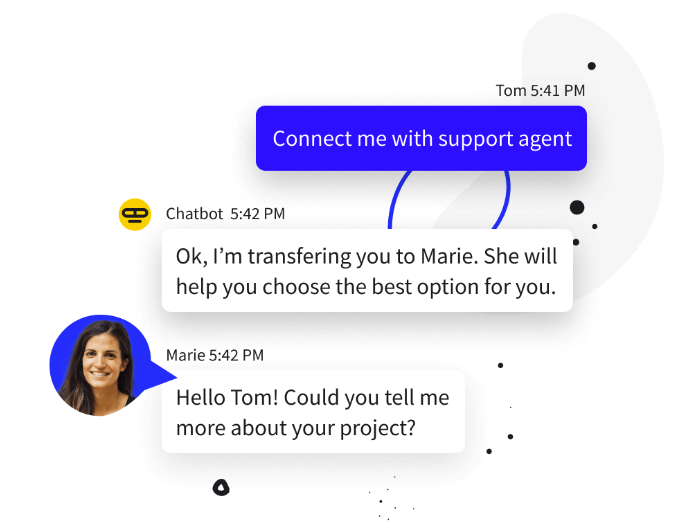
- Marketing Automation: This component allows businesses to automate marketing tasks, such as email campaigns, lead nurturing, and social media interactions. By personalizing marketing efforts based on customer data, businesses can increase engagement and drive conversions.
- Reporting and Analytics: Robust reporting capabilities help you measure performance, identify trends, and make data-driven decisions.
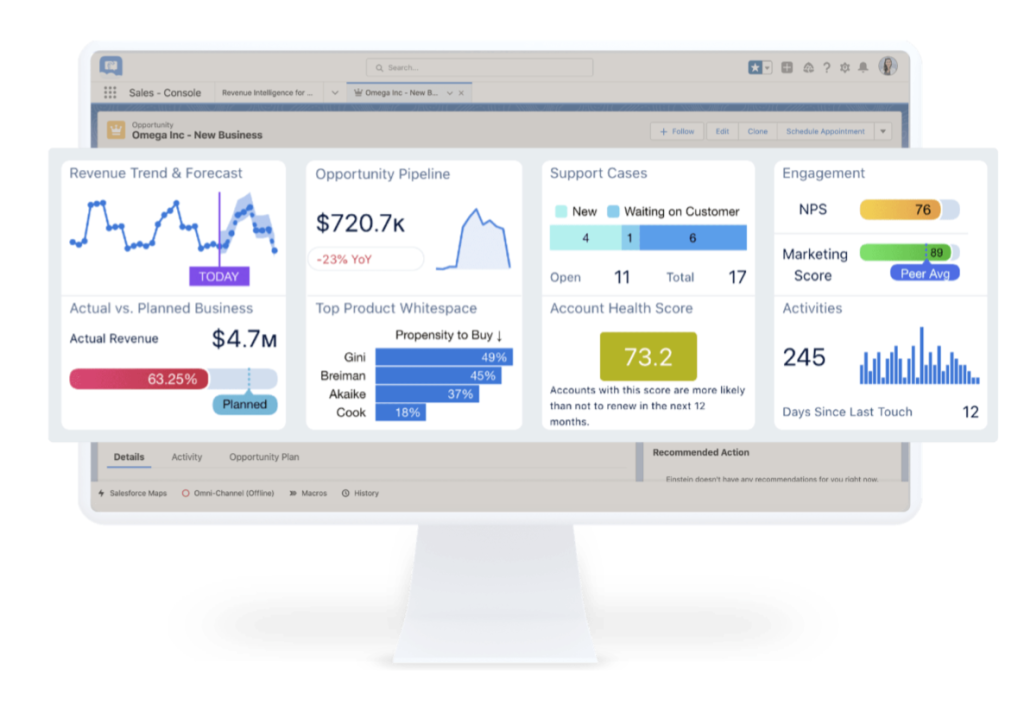
Benefits of CRM for Small Businesses
Implementing a CRM system offers numerous advantages for small businesses:
- Enhanced Customer Satisfaction: By providing personalized experiences and timely responses, CRM helps build stronger customer relationships and foster loyalty.
- Increased Sales and Revenue: Effective CRM enables sales teams to identify and prioritize opportunities, leading to increased sales and revenue growth.
- Improved Efficiency: By automating repetitive tasks and centralizing information, CRM frees up employee time to focus on strategic initiatives.
- Better Decision Making: CRM provides valuable insights into customer behavior and preferences, enabling data-driven decision-making.
- Scalability: As a business grows, a CRM system can adapt and scale to accommodate increasing customer volumes and complexity.
Assessing Your Business Needs
Before diving into CRM options, it’s essential to understand your business’s specific requirements.
Identify Your Goals
Clearly define your business objectives. Are you aiming to increase sales, improve customer satisfaction, enhance marketing efforts, or achieve a combination of these goals? Aligning your CRM strategy with your overall business objectives is crucial for success.
Analyze Your Current Processes
Take a close look at your current customer management processes. Identify bottlenecks, inefficiencies, and areas where a CRM system could provide significant improvements. Consider factors such as lead generation, customer onboarding, sales pipeline management, customer support, and marketing campaigns.
Define Your CRM Requirements
Based on your business goals and current processes, create a list of essential CRM features. Consider factors such as your business size, industry, and the number of users. Essential features may include contact management, sales pipeline management, customer support, marketing automation, reporting and analytics, and mobile accessibility.
By clearly defining your business needs, you’ll be better equipped to select a CRM system that perfectly aligns with your goals and drives business growth.
Selecting the Right CRM
Choosing the optimal CRM for your small business is a critical decision. Understanding the different types of CRM systems, essential features, pricing models, and popular options will help you make an informed choice.
Types of CRM Systems
There are three primary types of CRM systems:
- Operational CRM: This focuses on day-to-day interactions with customers, such as sales, marketing, and customer service. It automates tasks, improves efficiency, and enhances customer experiences.
- Analytical CRM: This leverages data to analyze customer behaviour, preferences, and trends. It provides valuable insights for making informed business decisions and optimizing marketing campaigns.
- Collaborative CRM: This facilitates communication and collaboration among different departments within a company, such as sales, marketing, and customer support. It improves teamwork and enhances customer satisfaction.
Most small businesses will benefit from an operational CRM with some analytical capabilities.
CRM Pricing and Packages
CRM systems come with various pricing models, including:
- Subscription-based: With this model, you pay a recurring fee, typically monthly or annually, to access the CRM software. The cost often scales based on the number of users, with discounts available for longer term commitments. This option provides flexibility as you can easily adjust your plan based on your business’s growth.
- Per-user licensing: In this model, you pay a fixed fee for each user who will access the CRM system. The number of users in your organisation determines the total cost. This pricing structure is suitable for businesses with a stable number of users.
- On-premises: With an on-premises CRM, you purchase the software outright and install it on your own servers. This option requires a larger upfront investment but provides complete control over the system. However, it also involves ongoing maintenance costs, including hardware, software updates, and IT support.
Consider your budget, the number of users, and the desired features when evaluating pricing options. Many CRM providers offer different packages to accommodate various business needs.
Popular CRM Options for Small Businesses
Several CRM platforms are specifically designed for small businesses:
- HubSpot: Known for its inbound marketing focus, HubSpot offers a free CRM with basic features. As your business grows, you can upgrade to paid plans with additional functionalities like marketing automation, sales tools, and customer service features. HubSpot is ideal for businesses looking to build a strong online presence and nurture leads.
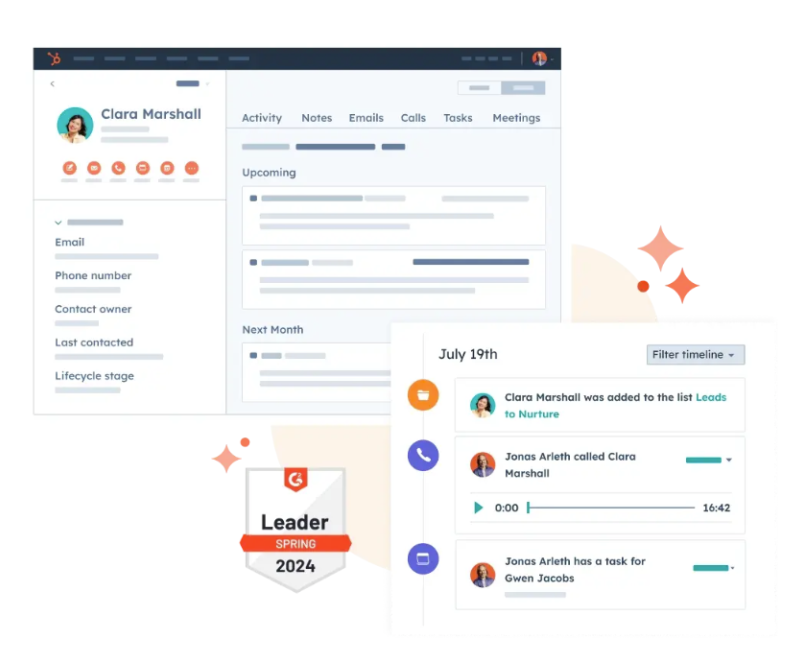
- Zoho CRM: This comprehensive platform offers a wide range of features at affordable prices, making it a popular choice for small businesses. Zoho CRM excels in customization, allowing you to tailor the system to your specific needs. It’s suitable for businesses seeking a versatile and cost-effective solution.
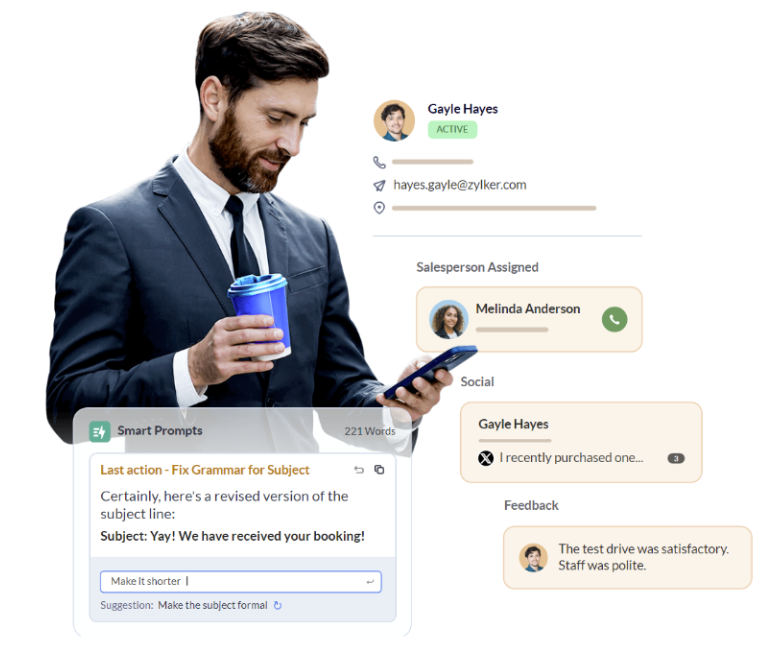
- Salesforce: As a pioneer in CRM, Salesforce offers a robust platform with advanced features and customization options. While it’s often associated with larger enterprises, Salesforce also provides solutions for small businesses. However, be prepared for a steeper learning curve and potentially higher costs compared to other options.
Researching and comparing different CRM options is essential to find the best fit for your small business. Consider factors such as pricing, features, ease of use, customer support, and scalability when making your decision.
Wrapping it up
The landscape for small businesses has never been more competitive. In today’s digital age, effective customer relationship management is no longer an option, it’s a necessity.
A CRM system empowers you to make data-driven decisions, gain valuable insights into customer behavior, and ultimately, achieve your business goals. Don’t let scattered spreadsheets and fragmented communication hold you back. Take control of your customer relationships and unleash the full potential of your small business with a CRM system. Start your research today and discover the power of CRM!
For more informative content on small businesses and e-commerce, click here! If you’re running an e-commerce store, we highly recommend you read these:
Embracing Tech: Must-Have Technology for Modern Retail
The Click-Worthy Guide: Building a Social Media Strategy that Converts for E-commerce
